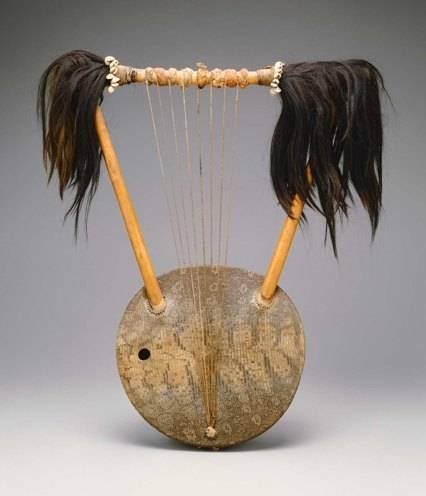Music in medieval West Africa served diverse functions, enriching the cultural tapestry of the region. It was much more than mere entertainment — it played a crucial role in religious ceremonies, storytelling, and social gatherings. What functions did music serve in medieval West Africa? Let’s delve into this fascinating aspect of African history and discover the profound impact it had on the communities of that era.
Exploring the Functions of Music in Medieval West Africa
Music in medieval West Africa played a crucial role in the daily lives of people across various regions, serving multifaceted functions that went beyond mere entertainment. In this article, we will delve into the rich tapestry of musical traditions in medieval West Africa and uncover the diverse ways in which music served the communities of that time.
The Cultural Significance of Music
Music in medieval West Africa was deeply intertwined with the cultural fabric of the societies in the region. It served as a means of passing down traditions, stories, and history from one generation to the next. Griots, or traditional storytellers and musicians, played a pivotal role in preserving the oral histories of their communities through music. They would recount the tales of great warriors, kings, and historical events through song and poetry, ensuring that the collective memory of the people remained intact.
Social Cohesion and Community Bonding
Beyond its cultural significance, music in medieval West Africa also played a crucial role in fostering social cohesion and community bonding. Through communal music-making, people would come together to celebrate various occasions such as weddings, funerals, agricultural ceremonies, and religious rituals. Drumming, singing, and dancing formed integral parts of these communal gatherings, creating a sense of unity and solidarity among the participants.
Healing and Spiritual Well-being
Music was believed to have healing properties in medieval West Africa. Traditional healers and spiritual leaders would often incorporate music into their healing practices, using rhythmic drumming and chanting to induce altered states of consciousness and facilitate the healing process. Music was seen as a powerful tool for restoring balance and harmony within the individual and the community, promoting overall well-being.
Religious and Ceremonial Functions
In medieval West Africa, music played a central role in religious and ceremonial contexts. Various religious traditions, such as Islam, Christianity, and indigenous belief systems, incorporated music into their worship practices. Chants, hymns, and devotional songs were sung during religious ceremonies to honor deities, ancestors, and spirits, creating a sacred atmosphere that facilitated spiritual communion.
Enhancing Ritual Efficacy
Music was believed to enhance the efficacy of rituals in medieval West Africa. The rhythmic patterns and melodic structures of traditional songs were thought to resonate with the spiritual realm, serving as a conduit for communication with the divine. Drumming, in particular, was considered to be a powerful medium for channeling spiritual energies and invoking the presence of ancestral spirits during rituals and ceremonies.
Expressing Devotion and Gratitude
Through music, worshippers in medieval West Africa could express their devotion and gratitude to higher powers. Songs of praise and thanksgiving were sung to honor the gods, ancestors, and divine forces believed to govern the universe. Music served as a form of prayer, allowing individuals to connect with the divine on a deep emotional level and express their spiritual aspirations.
Entertainment and Leisure
While music in medieval West Africa served numerous serious functions, it also provided entertainment and leisure opportunities for people in the region. Music and dance performances were held at social gatherings, marketplaces, and festivals, offering moments of joy, relaxation, and celebration amidst the daily struggles of life.
Celebrating Life’s Milestones
Music was an essential part of celebrating life’s milestones in medieval West Africa. From birth ceremonies and coming-of-age rituals to weddings and communal feasts, music accompanied every significant event in the lives of individuals and communities. Festive drumming, lively dances, and melodious songs added color and vibrancy to these occasions, creating lasting memories for all those involved.
Promoting Creativity and Innovation
Musicians and artists in medieval West Africa used music as a platform for expressing their creativity and innovation. Different regions had their unique musical styles, instruments, and performance techniques, showcasing the diversity and richness of musical traditions across the continent. Through improvisation and experimentation, musicians pushed the boundaries of traditional music, pushing the boundaries of what was possible in the realm of sound and rhythm.
In conclusion, music in medieval West Africa served a multitude of functions that transcended mere entertainment. It was a powerful tool for preserving cultural heritage, fostering community cohesion, promoting healing and spiritual well-being, enhancing religious and ceremonial practices, and providing moments of joy and celebration. The diverse roles of music in medieval West Africa reflect the deep-rooted significance of musical traditions in shaping the identities and experiences of the people of that time.
What Countries in Western Africa Region / Map of West Africa Quiz / Western African Countries
Frequently Asked Questions
How did music contribute to social gatherings in medieval West Africa?
Music played a vital role in enhancing the communal spirit during social gatherings in medieval West Africa. It provided a rhythmic backdrop for dances, songs, and storytelling, fostering a sense of unity among the people. Additionally, music often accompanied important ceremonies and rituals, adding a sacred element to these events.
What significance did music hold in the spiritual realm of medieval West Africa?
In medieval West Africa, music served as a powerful tool for spiritual expression and connection. Traditional songs and rhythms were used in religious rituals, ceremonies, and healing practices to invoke ancestral spirits, seek divine guidance, and provide solace to individuals facing challenges. Music was believed to have the ability to bridge the physical and spiritual worlds.
How did music impact the cultural identity of medieval West Africans?
Music played a crucial role in shaping the cultural identity of medieval West Africans by passing down oral traditions, history, and values from generation to generation. Through songs, chants, and musical instruments, communities preserved their heritage and shared knowledge, creating a sense of belonging and continuity within the society.
Final Thoughts
Music in medieval West Africa served various functions, including storytelling, communication, and ritualistic purposes. Through rhythmic drumming, melodic instruments, and vocal performances, music played a vital role in conveying history, traditions, and messages within communities. Additionally, music was used during ceremonies, celebrations, and spiritual gatherings to invoke emotions and connect individuals with spiritual beings. Overall, the diverse functions of music in medieval West Africa highlight its cultural significance and importance in shaping social interactions and beliefs.




